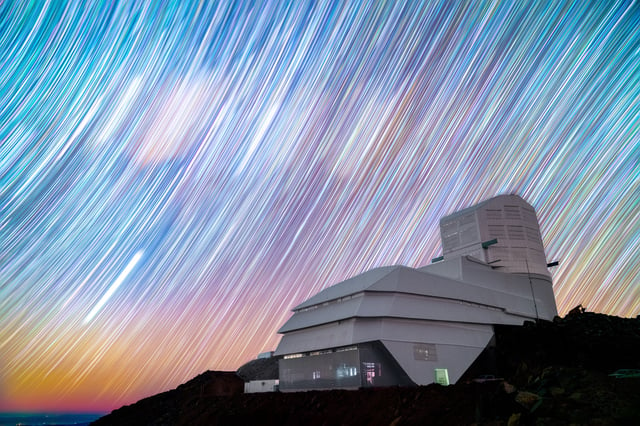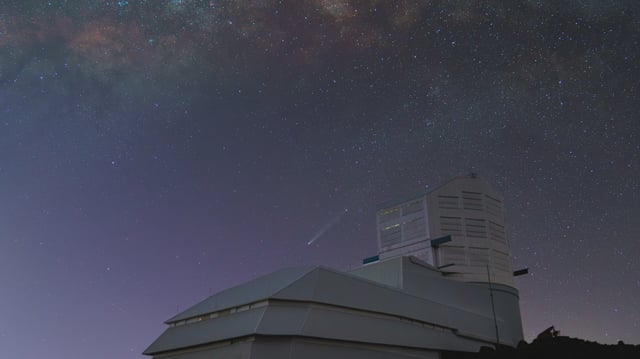Overview
- A livestreamed press conference will begin at 11 AM ET on June 23 on the National Science Foundation’s YouTube channel, with planetariums and museums worldwide hosting public watch parties
- The observatory’s camera features a 3,200-megapixel sensor, two large lenses and a focal plane of 201 CCD detectors that can image a sky area seven times wider than the full Moon every 40 seconds
- Installed in March atop Cerro Pachón in Chile, the 8.4-meter telescope will now reveal its first observations after transporting and integrating the LSST camera over the past year
- Over the next decade, the Legacy Survey of Space and Time will scan the southern sky every three to four nights, producing about 20 terabytes of data each night to study dark matter, dark energy and transient astronomical events
- Funded by the National Science Foundation and the Department of Energy, the survey is expected to vastly increase known small bodies in the Solar System and transform digital sky mapping

